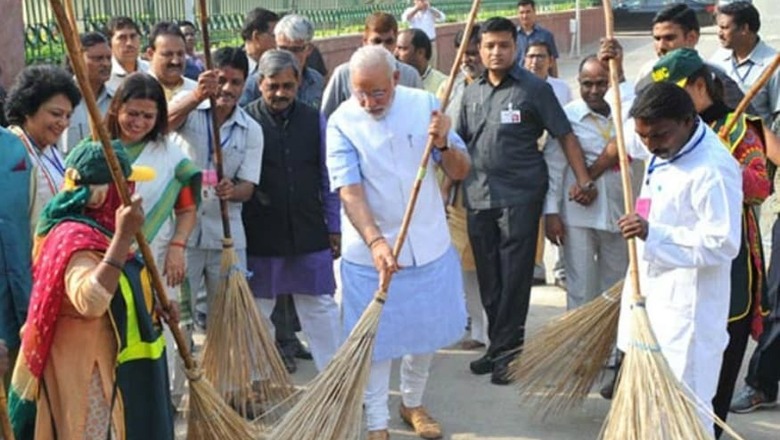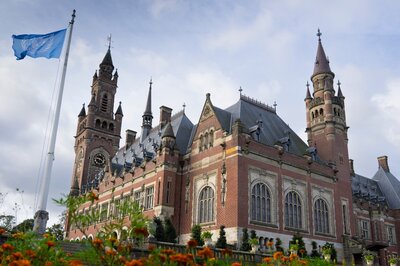
views
New Delhi: The Centre on Wednesday approved the second phase of Swachh Bharat Mission (Rural), Prime Minister Narendra Modi's pet project focussed on sustainability of ODF and management of solid and liquid waste. The second phase will be implemented on a mission mode between 2020-21 and 2024-25 with an estimated central and state budget of Rs 52,497 crore, the Jal Shakti Ministry said in a statement.
The rural sanitation programme was started on October 2, 2014, when the sanitation coverage in the country was reported at 38.7 per cent. More than 10 crore individual toilets have been constructed since the launch of the mission and as a result, rural areas in all states have declared themselves open defecation free (ODF) as on October 2, 2019.
The second phase will focus on Open Defecation Free Plus (ODF Plus), which includes ODF sustainability and solid and liquid waste management (SLWM), the statement said. The ODF Plus programme will converge with MGNREGA, especially for grey water management, and will complement the newly launched Jal Jeevan Mission. The programme will also work towards ensuring that no one is left behind and everyone uses a toilet, it said.
The 15th Finance Commission has proposed earmarking Rs 30,375 crores for rural water supply and sanitation to be implemented by rural local bodies for the upcoming financial year. The Department of Drinking Water and Sanitation (DDWS) under the ministry has, however, advised all the states to reconfirm that there are no rural households that still don't have access to a toilet, the statement reads.
The department has also said that to provide the necessary support to any such identified households to build individual household toilets in order to ensure that no one is left behind under the programme.
The fund sharing pattern between the Centre and States will be 90:10 for North-Eastern States and Himalayan States and UT of J&K; 60:40 for other States; and 100:0 for other Union Territories, for all the components.
The ministry said the Swachh Bharat Mission-Grameen continue to generate employment and provide impetus to the rural economy through construction of household toilets and community toilets, as well as infrastructure for waste management such as compost pits, soak pits, waste stabilisation ponds, material recovery facilities, etc.




















Comments
0 comment